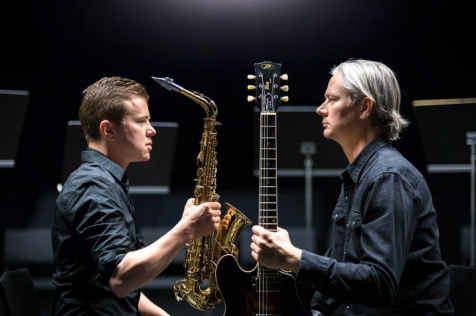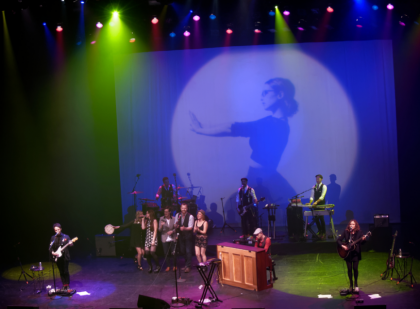Your personal music search space.
Augment your understanding of music.

______________________________________________________________________________

YMUSIC SEARCH ENGINE
From the composer to the listener, from psychology to spirituality, from art to science, get insights on each field of music, learning about craft or history, about human behavior or consciousness. A place is also given to ethical questions.
MUSICAL CULTURE IN ITS VARIOUS ASPECTS
MUSIC AND CONSCIOUSNESS, BETWEEN MIND AND BODY

Do you want to feel again the intense emotional power of music written all around the world? Try the YMusic search engine, your free personal assistant (it includes musical criteria to select music), and let the music induce new emotions in you!
What is the first purpose of the musical art?
Artists attempting to express individuality, attractiveness, distinction and novelty, art has hence a great capacity to induce feelings and emotions in people: listening to a beautiful piece of music, listeners will enhance their imagination or exorcise their individual sentiments.
Arts emerged from the desire to manage the life of the individual in a quest for well being. Human beings tend to stay healthy by maintaining a relatively stable physiological equilibrium, for example through regulation of the body temperature, but also through the use of the brain and the action of the mind, that last notion being assimilated to the notion of self, in the context of cultural evolution. It is in that context that the arts have developed.
Thinking about how bones once became flutes may help to get an idea of how accents could create rhythms and some rhythms could create serendipity. In an environment that was not safe, it must have been a great consolation for the barely born human heart. Even unorganized, it must have contributed to well being or, at least, joy and peace. At the elementary level, art is here to please the mind and the soul. Intellectual elaborations came later. But before the human being was completely minded and conscious, efficient behaviors like those leading to musical creation existed.
Music to orient the body and the soul
Attaining the human mind, music arises into a world populated with attachment, disruptions, bonding processes and all kinds of positive or negative feelings and states, from envy to revenge, from love to peace. In it, music, as a form of art, may be a tool of communication for listeners and a means of well being for artists, conveying emotional and factual information. In that sense, art is subliminal.
For example, even without noticing it, people may want to go watch thrillers to better manage situations in which they hope they would never be involved in. Music can elevate listeners from the level of the body to the threshold of the mind. That is why it is a refinement that people want to achieve. When they experience art, people change for the better.
Art forms, including music, also have a part to play in what psychology researchers call the attachment system. That system manages behaviors related for example to romantic love. It includes three degrees. At a very elementary level that can be called sex drive, when it comes to romantic love, it may help to distinguish one person from another. Then, a little more complex, at the stage of attraction, it is a tool to focus on someone. At the higher level of complexity, which is attachment itself, the system helps us to persevere in a relationship.
In the context of romantic love, what does music bring? Being conscious that they feel romantic love, people begin to consider one person in a very special way: the car of that person is unique, the street in which the person lives is different from all other streets on earth! The person has a special meaning. Romantic love may be an addiction, especially when a person is rejected and it leads to a negative sense of self. A huge part of music is written to cover that subject, especially in popular music.

Musical evolution, body and soul

Do you want to explore a great variety of relationships to sounds across time and space? Try the YMusic search engine, your free personal assistant (it includes musical criteria to select music), and relax and take time for yourself!
Do music and the human consciousness really relate?
Is the quest for consciousness an asset for the music listening experience?
Human beings have been making music and have been attracted by music for a very long time now, and sounds have a real power over them. That power remains, somewhat, cryptic, and that is why even today music researchers from various disciplines still wonder what sound is. If sound is still hard to define in a unique way or to define in new ways, everyone today knows what sound is not: sound is not a monolithic ensemble. Various musical and mathematical ratios are manifested in the various sounds, it is highly visible in that musical ‘genre’ named ‘world music’ which covers a great variety of relationships to sounds across time and space. To that variety of forms must be added a variety of use, from entertainment to rituals.
There is a tendency nowadays amongst music psychologists to write theories that explain how music supports the development of consciousness and enumerates the various way in which music is processed by the brain, assimilating music to a critical thinking tool. However, other professionals, sometimes involved more directly in musical creation and performance, swim against the tide. For instance, conductor Thomas Beecham said that music must release the human being from conscious thought, which is tyrannical. That position is rare.
Consciousness, music and physical universe
It is true that music affects human consciousness and that reality is studied by philosophers as well as scientists. Also, it interests therapists, who work with listeners and help them reach higher states of well being by using sounds. They develop models that suggest articulated practices to listeners. These practices may include, for listeners, breathing and visualization exercises that are done while the therapist is playing an instrument. One main result is that listeners, using sound, may cut off from discursive thought. Also they may disengage from their usual thinking patterns that may invade daily life, somethig that is necessary for those who tend to think in a negative way, often despite themselves.
Music therapists, using sounds, adopt different approaches. In some models of sound therapy, music therapists are active, playing an instrument, while listeners are passive, and in other ones, listeners are active too. In any case, some models insist on rhythm and tempo while other ones place the emphasis on frequencies and overtones. Besides sensory-motor practices, those which concentrate on frequencies are clearly related to spirituality, establishing links between the vibrations of the human body and those produced by musical instruments plus those that go along with the movements of the cosmos, which is the universe considered as a well-ordered system. As a reminder, frequency is the speed of vibration of the sound and an overtone is a multiple of a specific frequency. Therefore therapies related to frequencies are playing on musical ratios to invite listeners to meditate.

Do you want to consciously explore musical emotions ? Try YMusic, your free personal assistant (it includes musical criteria to select music), and take more control over your music listening activity!
Human experience and musical emotions
Both the public at large and researchers involved in the field of psychology are trying to discover why and how some physiological changes accompany emotional experiences while other ones do not and why some emotional states are directly linked to their mental activities, including music listening, while others are not. Everyone may use music to increase their understanding of an event or a relationship, for instance.
That situation may look curious: the fact that so many listeners have a tendency to rely on music to enhance their daily routines or resolve a situation may be at first sight surprising, because music does not directly talk of any of the actions, passions, concepts or persons generally associated with human experience. Stricto sensu, musical sounds do not describe and do not picture anything. Music listeners really feel emotions when they are listening to musical sounds, but their emotional experiences are musical emotions, they are musical affective experiences that refer directly to nothing but music listeners themselves, even if these listeners may relate their musical feelings to places, situations and people.
The pleasantness of musical prediction
As they differ in nature, how can emotions that listeners feel when they are exposed to music and the rest of their emotions (that they live outside of the musical field) relate through mental processes? In other words, what are the relationships between music listeners’ perceptions and their answers to these perceptions based on their life story? The first response given by research in the field of music psychology is that musical sounds may both inhibit and arouse tendencies and thereby give rise to emotions. When listeners develop self-conscious tendencies to understand these emotions, they cultivate higher expectations of musical sounds. In more simple terms, they form habits of perception that give them emotional satisfaction when they discover new pieces of music and try to make predictions related to them, yet it does not prevent them from examining parts of their life story at the same time.
Musically speaking, the more accurate a prediction related to the sounds to come is, the more the listener will find the moment delightful. First, predictions that come true are seen as serendipitous (the word coming from serendipidy, that luck having the form of a pleasant event that was not sought). Then, one piece of music being discovered after another, the listener will be able to talk about knowledge and therefore control. That is the general path followed in exploring a musical genre for example: for the first dozens of musical pieces, listening is unconscious, but when the listener has discovered some thousands of pieces belonging to the same genre, that style of music is descibed as known. How many pieces must be discovered so that a musical genre may be described as known? It depends on the genre and the listener, however, for rock music, a sample of almost three thousands titles gives a general idea of what it is.
Music, emotional control and consciousness
Forgetting external judgments, do you want to define what is your own musical taste? Try YMusic, your free personal assistant (it includes musical criteria to select music), and find new music corresponding to your taste!
Is music a place for control?
Musical activities are a domain where people like to exercise their control. There are numerous testimonials from professional musicians that explain how they came into contact with music at school and how it was a marvellous time of serendipity in a rigid educational context. And it is the same for music listeners: high school students are happy to talk about moments snatched from the relentless passage of time when they are at school and do not want to listen to anything but the latest album of their favorite artist.
Music making, as well as music listening, is a place of control. Music does not allow escape from all constraints, especially for the musician that wants to become a professional: having a lot of skills to acquire, musicians must work hard to develop their talents. And music listeners must develop abilities too in order to get the most out of music. But music helps everyone to reach their internal locus of control and may be a key element in personal development.
Perhaps this is a reason why a lot of people have a tendency to be excessively critical when they compare their musical experience to others. When people are listening to music they do not like or understand because that music is not built on the principles and structures that meet their own standards, most of them make subjective judgements that are consonant with received ideas about music, to the point of deciding themselves what is music and what is not.
How do people draw up judgements on what is music?
There is a huge difference between these two statements: ‘It is not music!’ and ‘I do not like that music!’. The first one supposes that the person who makes the statement has an extensive knowledge of all forms of music across different periods of time, regions, plus at least a background in psychology and anthropology. The second claim is more ordinary, may happen each day and does not require, from the person who speaks, any specific musical training. Expressed in terms of tastes, it is just a manifestation of freedom of speech and it may be justified. Everyone has the right to estimate the value of what is being listened to, however most people feel that imposing such a judgment is not acceptable.
Unqualified judgments related to the nature of music are generally due to the fact that the way people consider sonic art is a little more rigid than the way they see the visual arts. People accept easily that there are different forms of visual art such as painting, sculpture, photography; however, most of the time, they consider music as the only form of sound art. Can sonic art be divided into various forms? For most composers, it cannot: music is the only acceptable form of aural art and it must be tonal. For a small minority of contemporary composers who have an influence in some circles of trained music listeners, music may be atonal too, they are extending the field of musical experience. For a last category of composers, which includes a very small number of composers, music may be defined as any sound that engages our ears.
Does music help musicians and listeners to take control of their life?

Do you want to take a moment to review some music and determine what sounds authentic to your ears? Try the YMusic search engine, your free personal assistant (it includes musical criteria to select music), and let the music touch you in the mood you are now, whatever it is sad, happy or somewhere in between.
Music as a form of conscious communication
Is conscious communication a wayward act?
Generally, openness and consciousness are aptitudes developed to limit the adverse impacts of value judgements formed on others or the world. They help to reach higher levels of receptivity. In that context, high-quality listening requires one to hide one’s ego in the presence of people who are talking. It is not about waiting for one’s next turn to speak, it is about listening. In fact, sometimes, it is not even appropriate to search for an answer.
Conscious communication can be a rebellious act. In fact, what is valued the most is monolog with monolog. It is fine to talk about news, for example, but not so much to connect. Interaction supposes receptivity in order to attain a higher state of consciousness. That is why music composers and listeners who are really receptive to music are in conversation with music and between them.
Fully involved in the music business, music composers and performers spend a lot of time preparing themselves for public communication. They learn new things about music, but also about their audiences and the industry in general. It helps them to discern the elements to which listeners are the most receptive in their art.
How can music creators and listeners connect in a conscious way?
Music creation can have a deep influence on listeners sometimes and musicians have always been aware of that situation. Now, with the development of the internet, composers, performers and listeners may have more active dialogs.
Social aspects of online life relying on writing and the culture of image, everyone needs time to express what they mean without being too stressed by their own personality or because time is short. However, this does not suppress all problems related to communication. And sometimes the lack of authenticity can be worse online than in offline life. In fact, the internet lets people live a life that is very far from their own body and also very far from their authentic self, which includes elements like sadness, anger, grief, aging, death and all the realities people never want to talk about.
Yet to be receptive to other people requires us to take everything that constitutes their personality into account. How is this possible when people do not want to show every aspect of their social life? How can musicians be aware of what listeners really love in their work? Some of them tend to integrate the different parts of their own personality in order to produce a musical communication that truly reflects themselves. They let music and sometimes lyrics emerge from their whole self rather than following techniques advocated by music schools. It is empowering for them and it stimulates energy, in some cases it may explain their success: they estimate that, doing it in the right way, it is possible to talk about everything through their music, happy realities as well as sad ones. They please listeners that are more demanding in terms of sincerity. It is not really, for such listeners, so much about living a healing experience as a cathartic one.
Music as a form of conscious communication